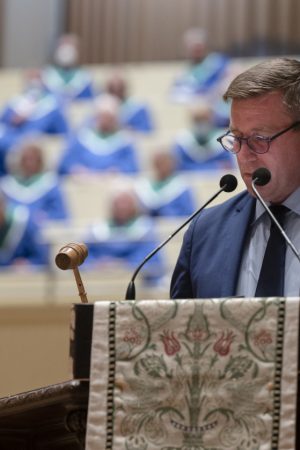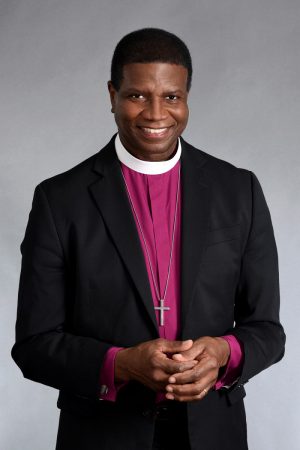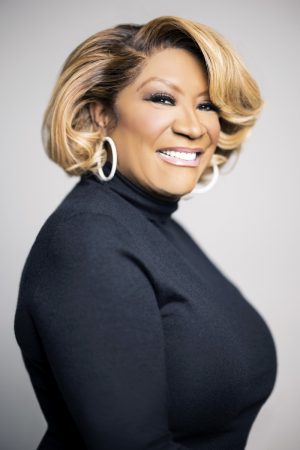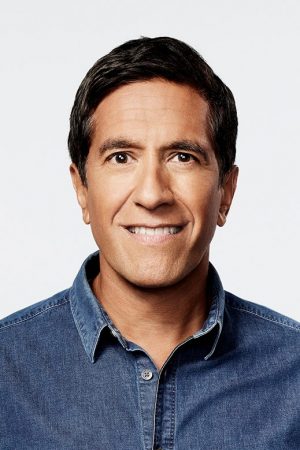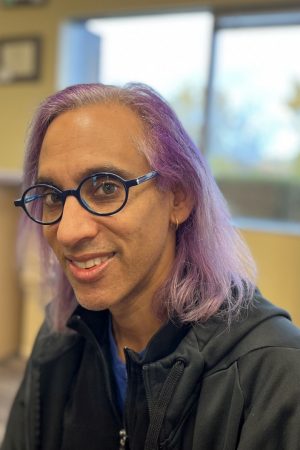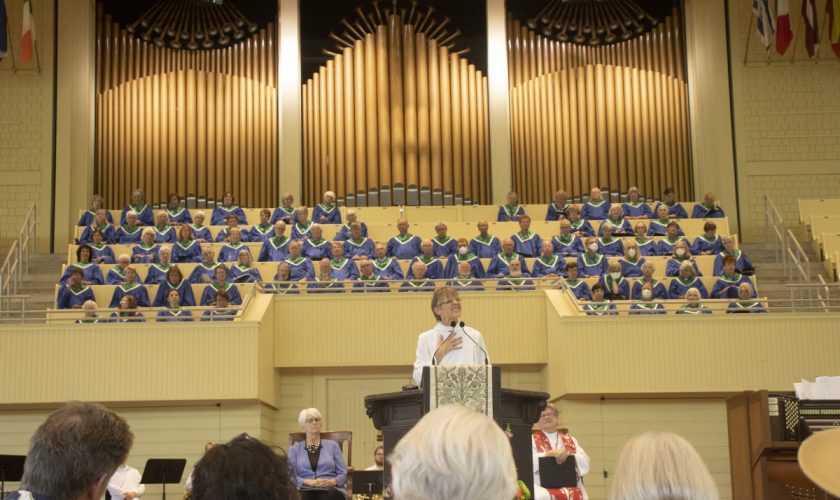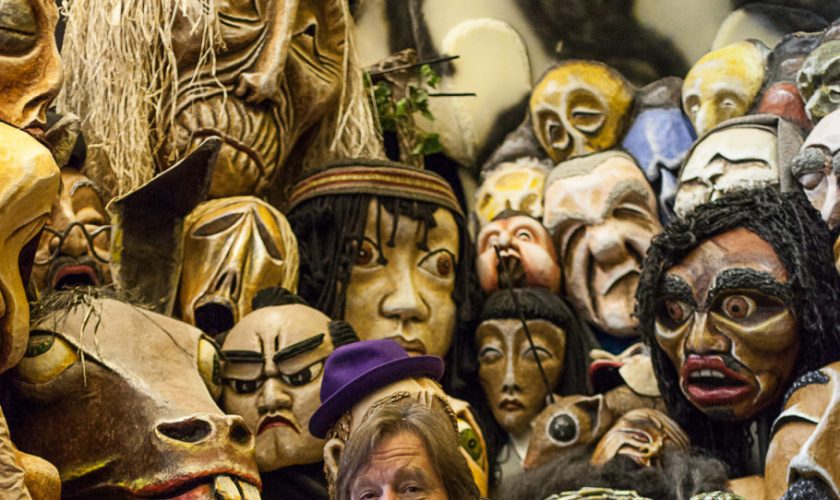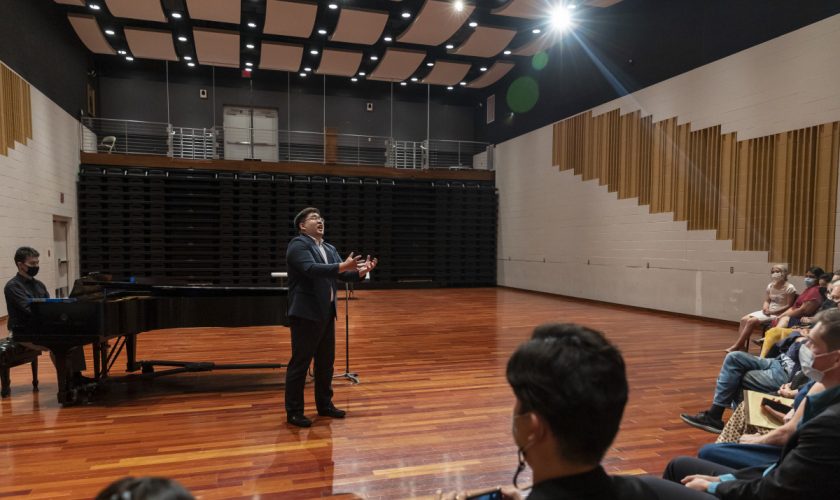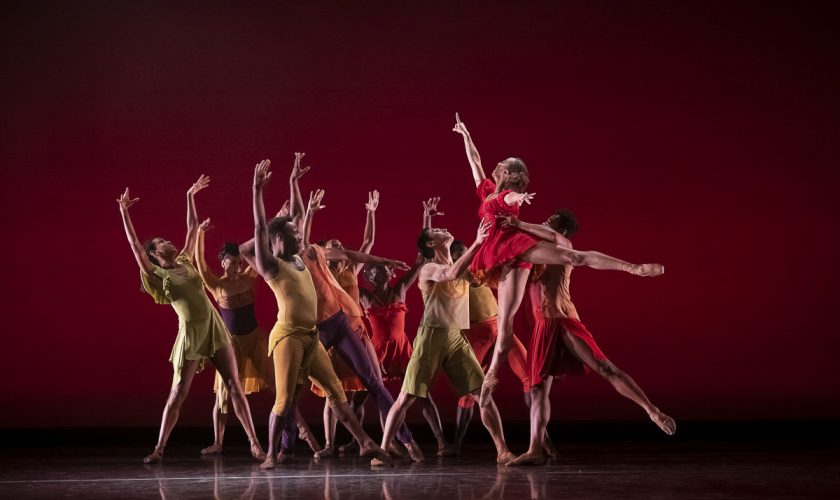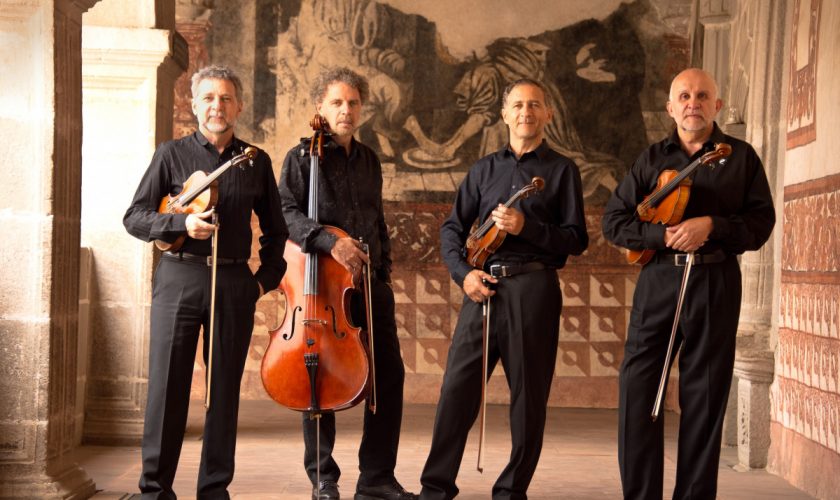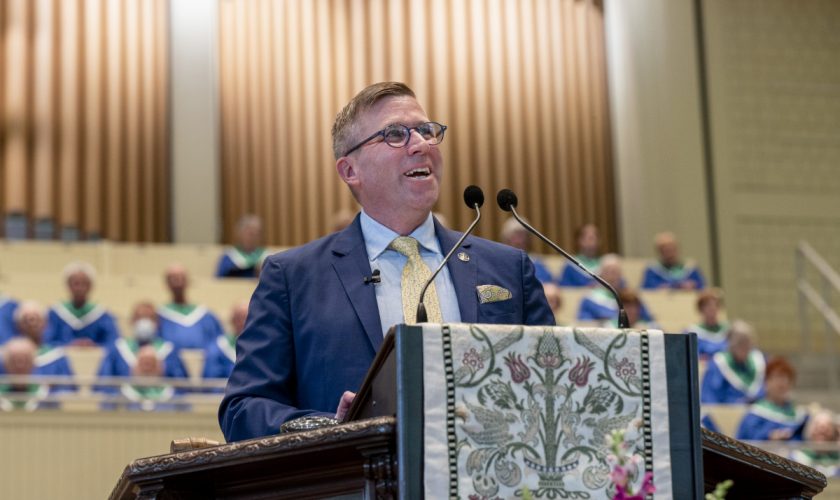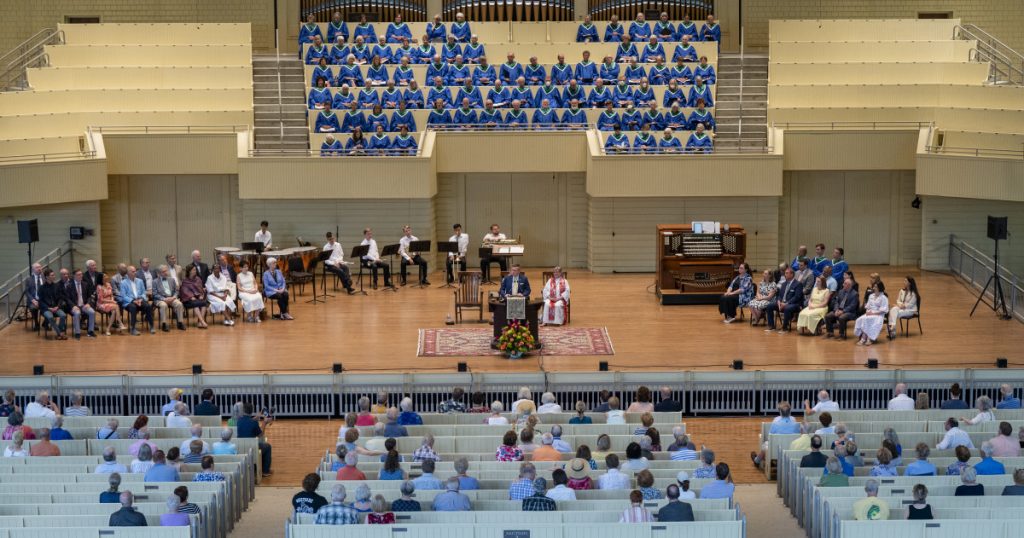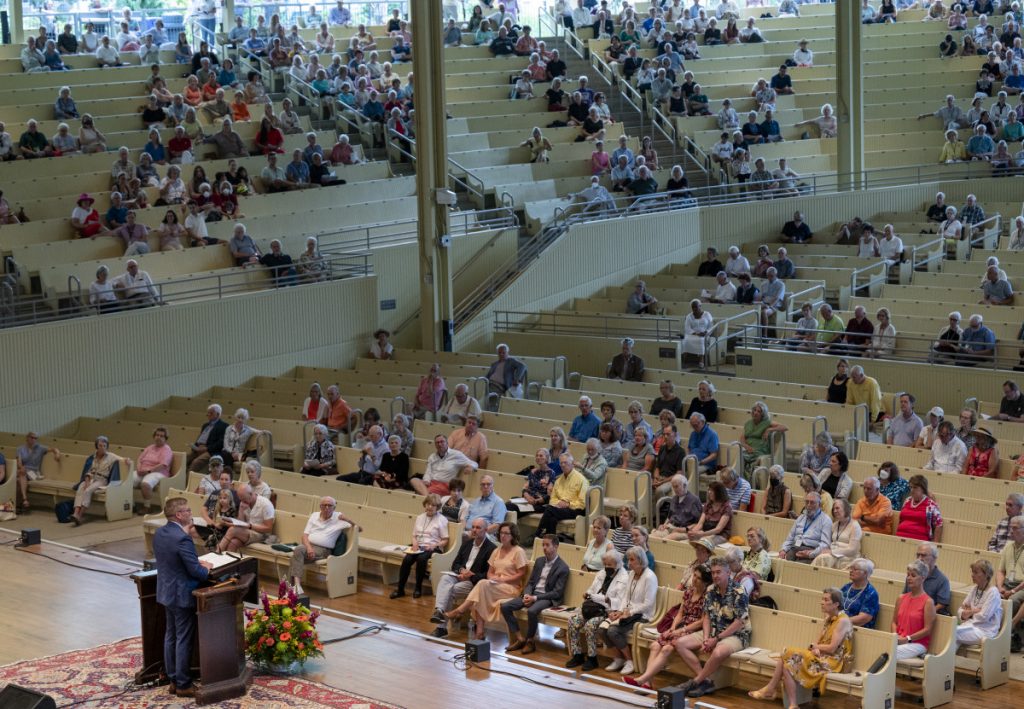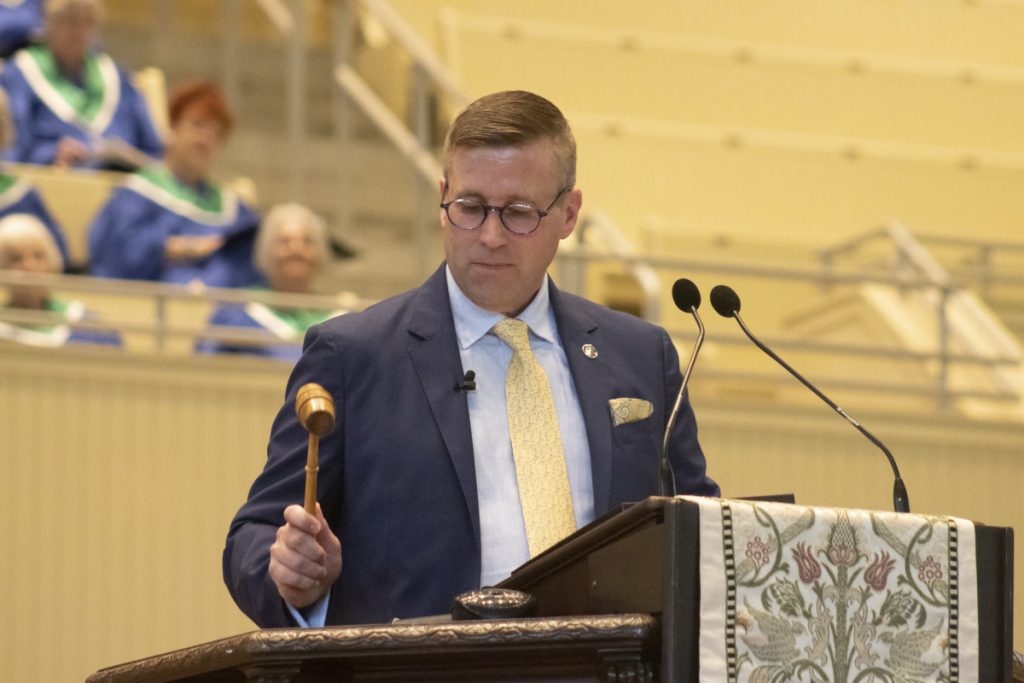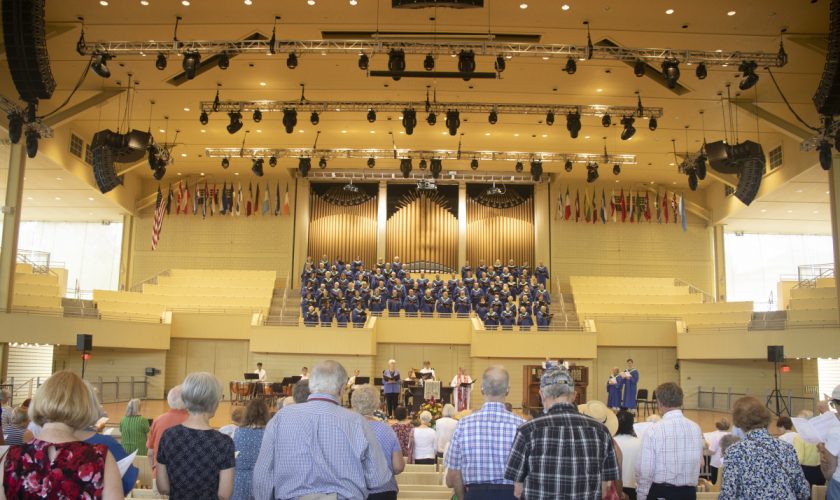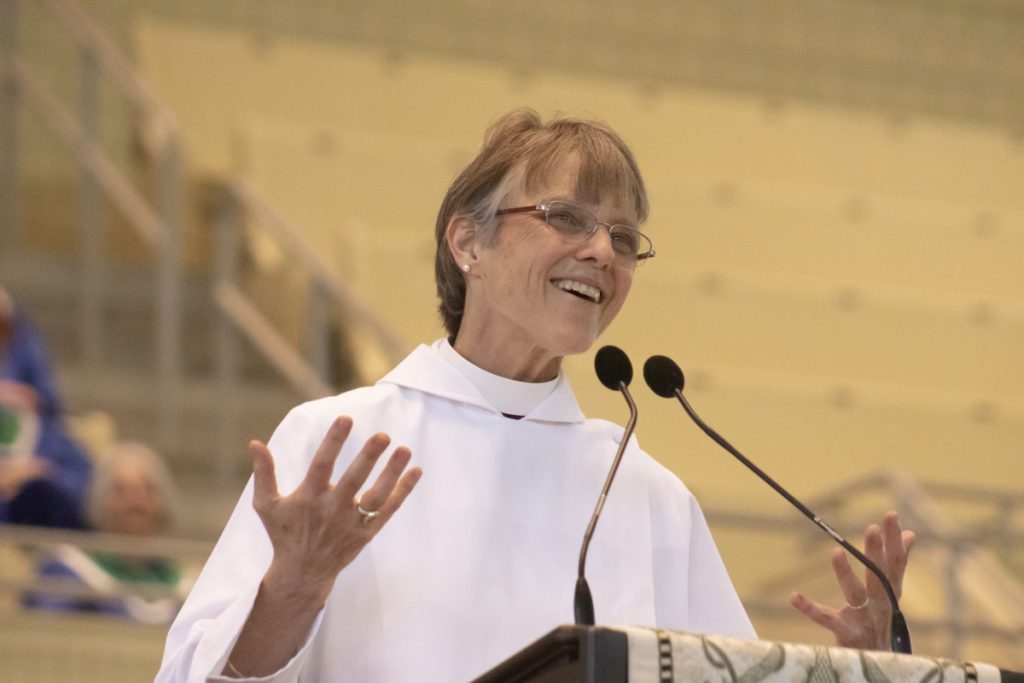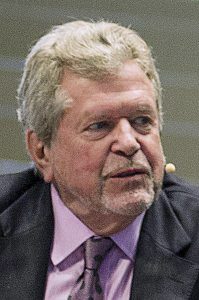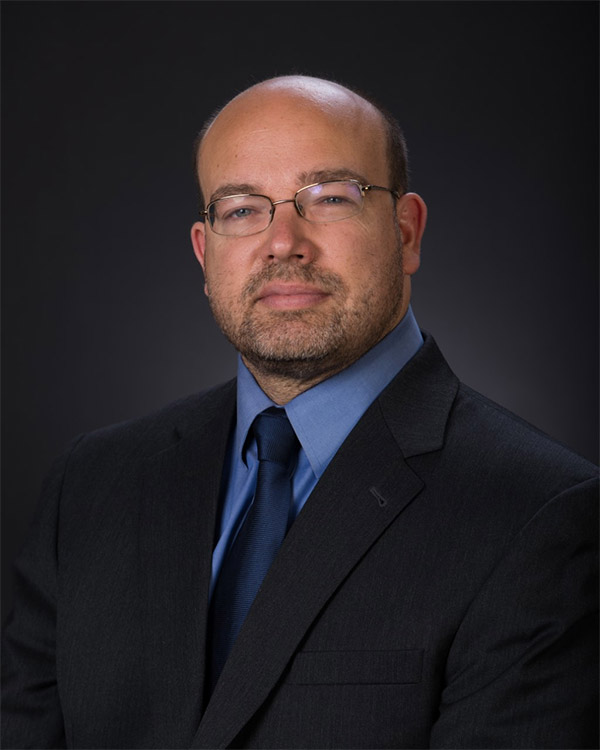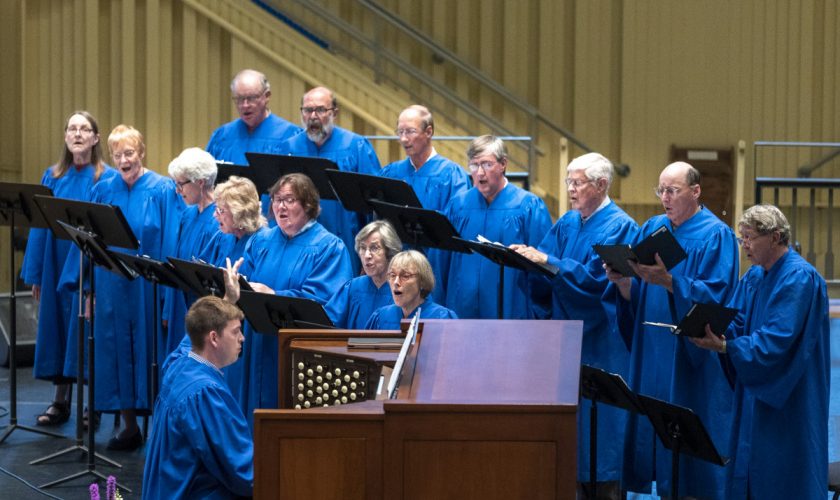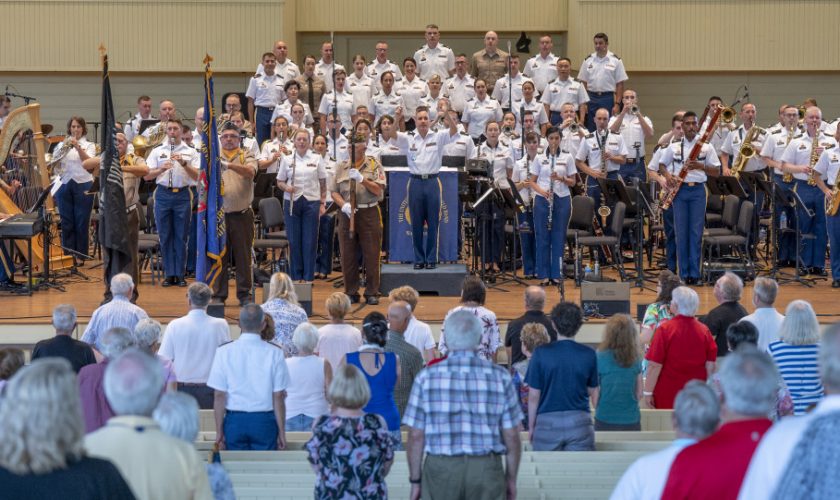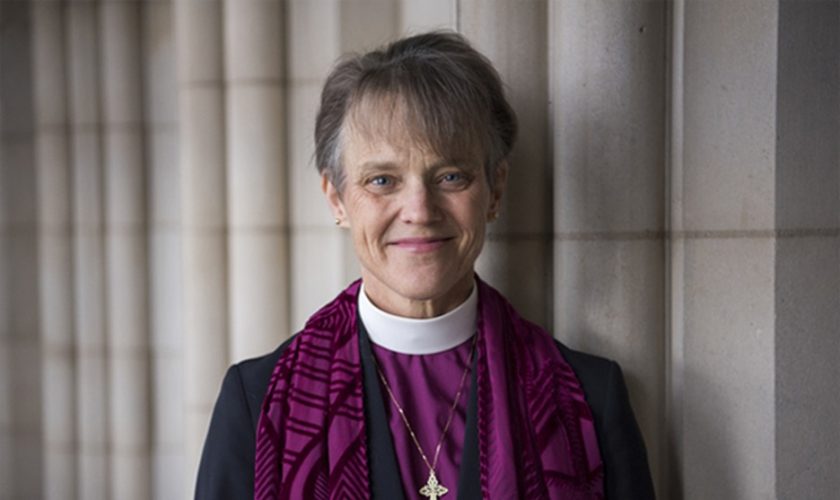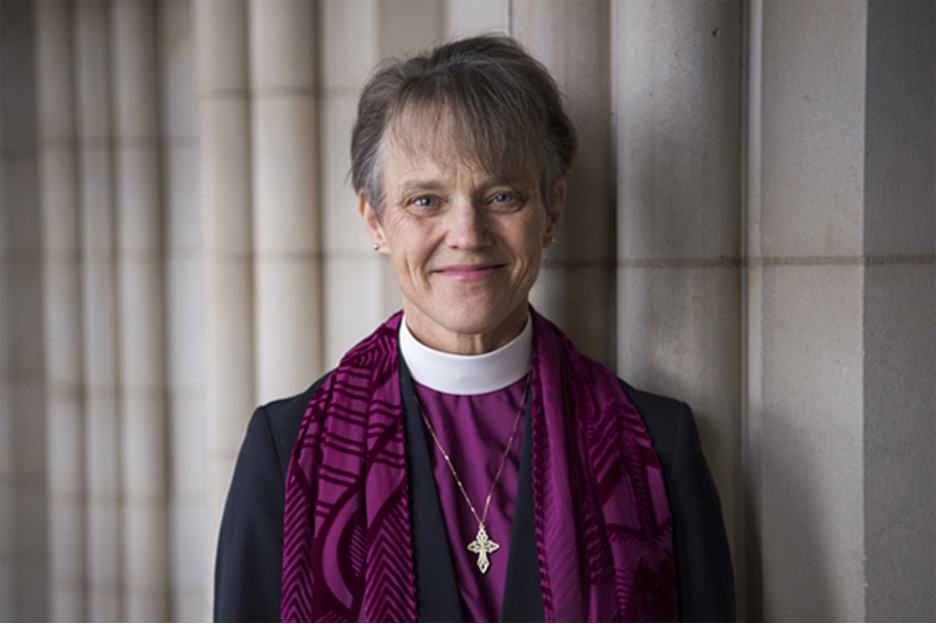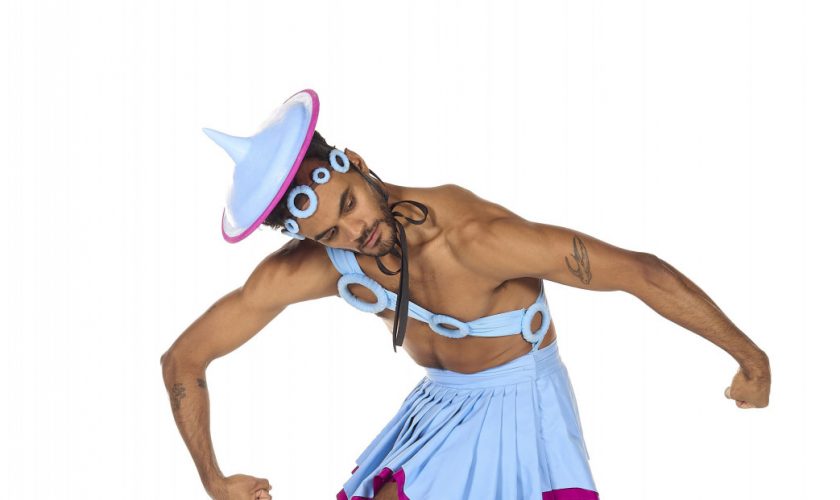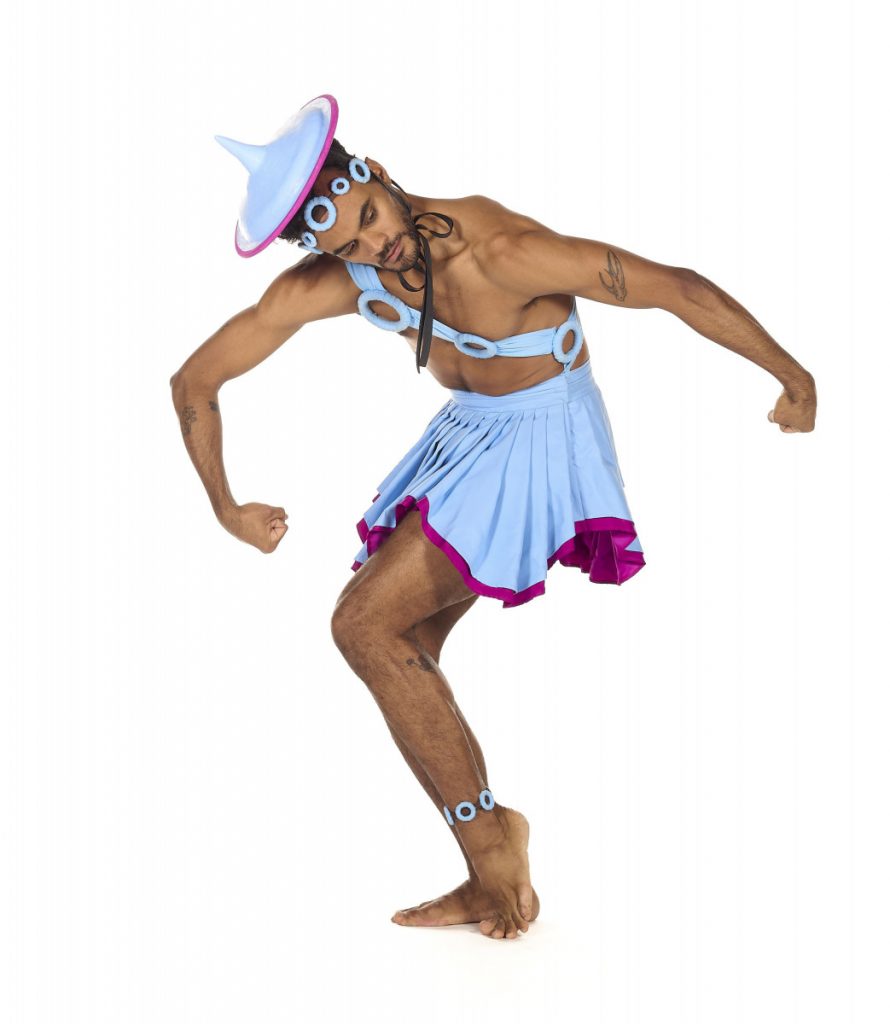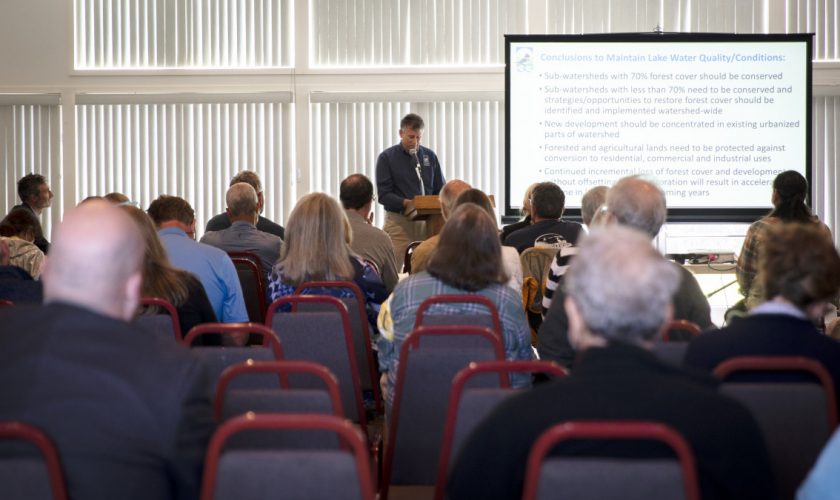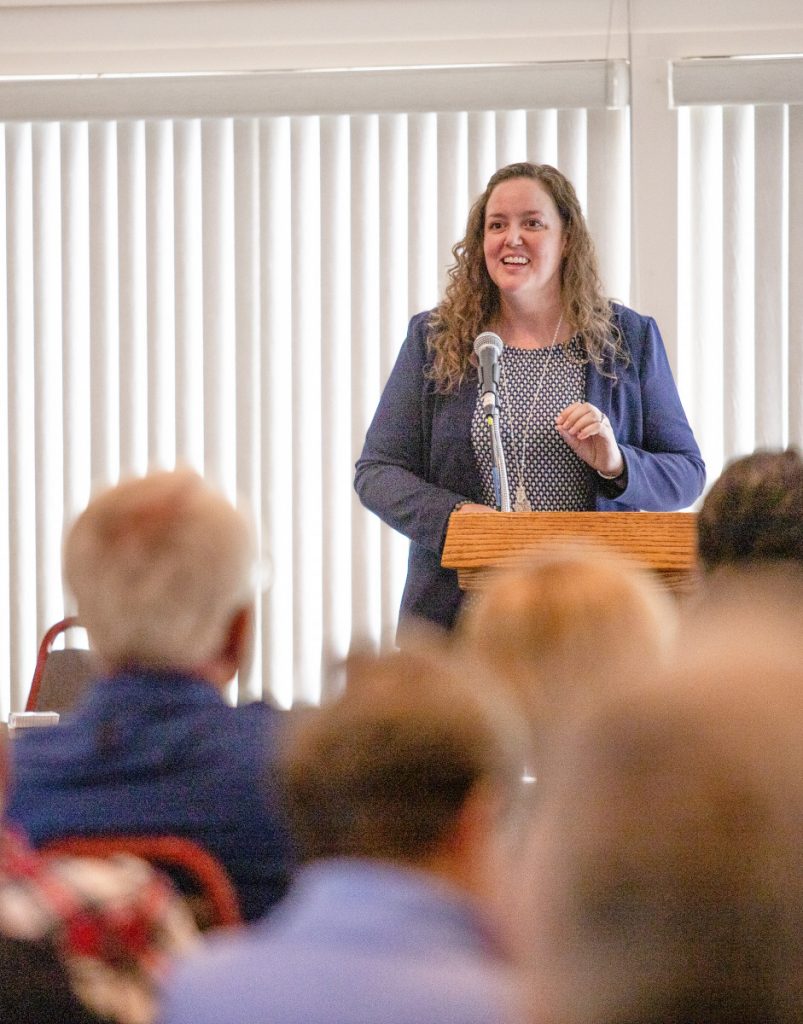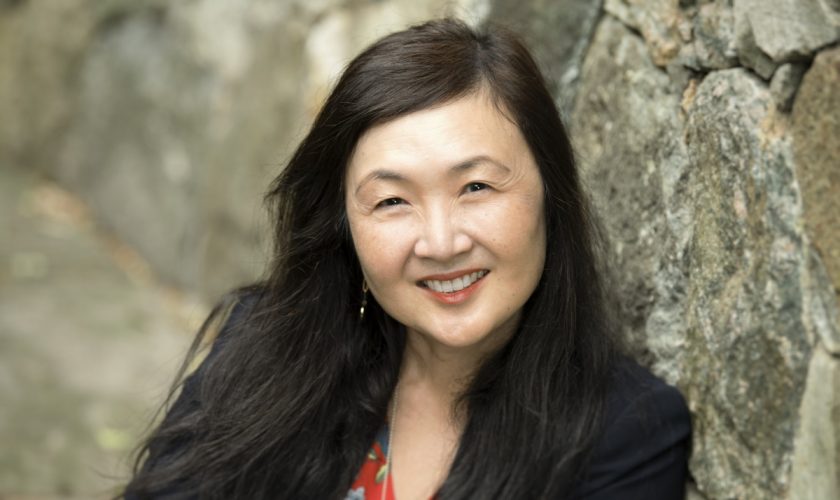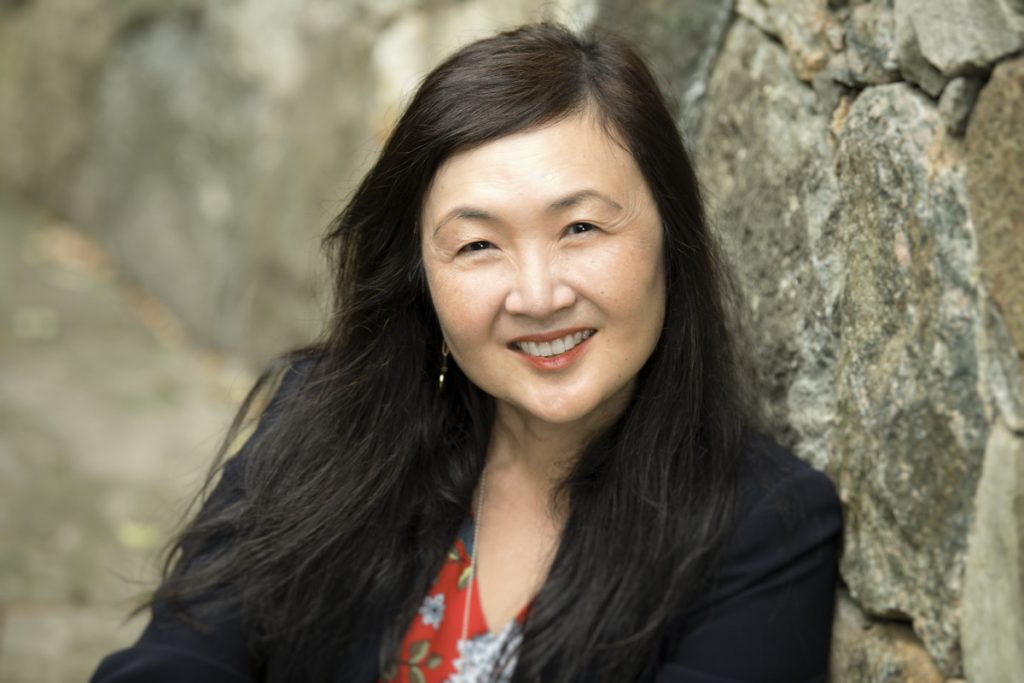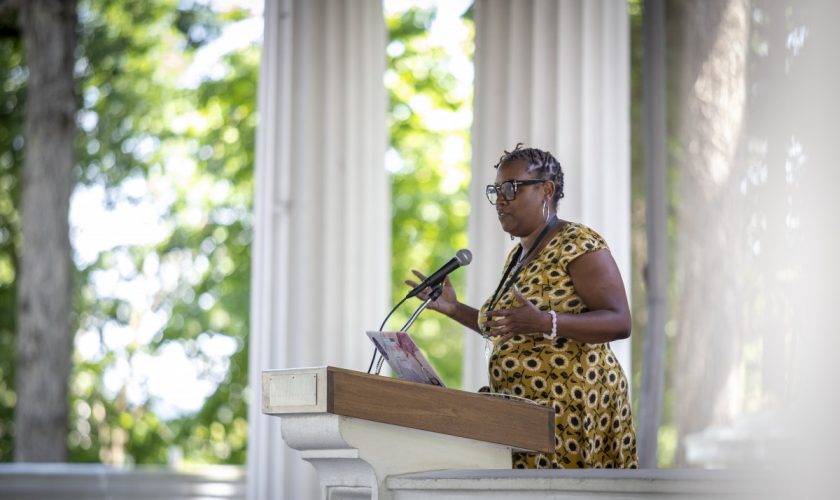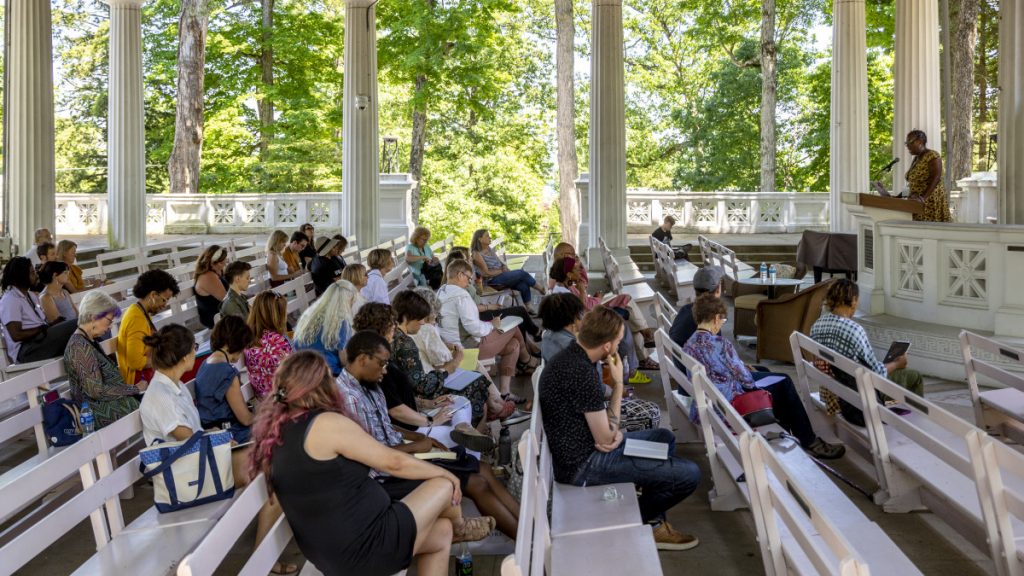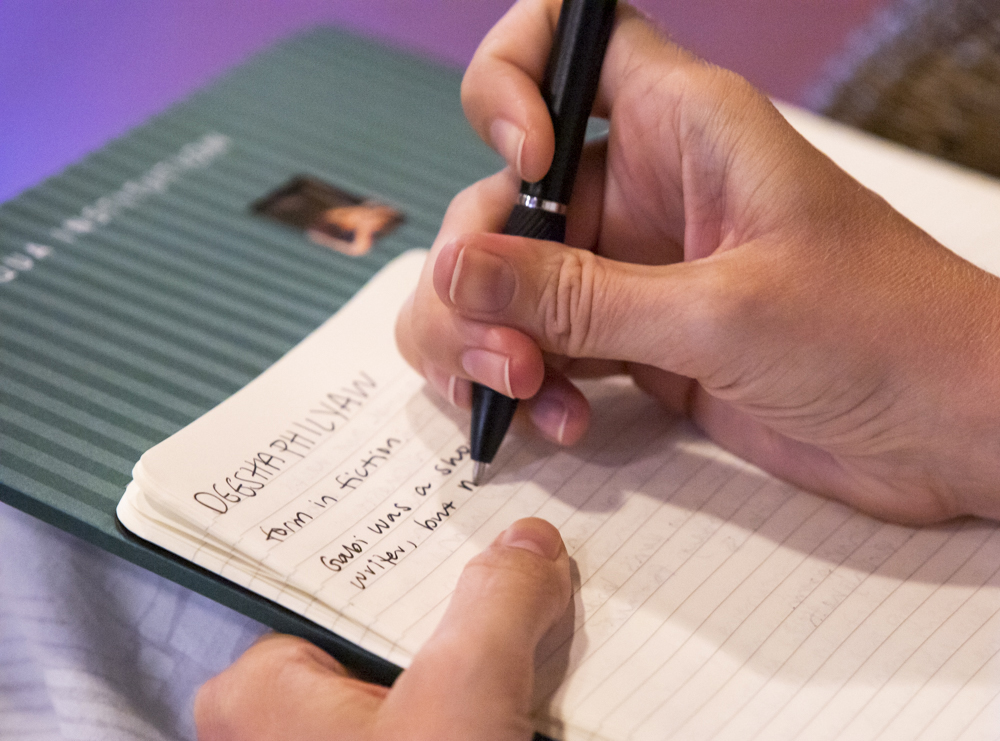“There are decisive moments in life and faith when we learn to be brave and we know we must go and walk toward our destiny,” said the Rt. Rev. Mariann Edgar Budde at the 9:15 a.m. Monday, June 27, ecumenical worship service in the Amphitheater. Her sermon title was “Deciding to Go,” and the scripture texts were Genesis 12:1-4 and Mark 1:16-20.
There are many coming-of-age stories. Some of them are responses to situations beyond the control of the protagonist, like Dorothy in The Wizard of Oz, or Frodo in The Lord of the Rings.
Sometimes they are stories of liberation, like the Harry Potter series when Harry is liberated from 4 Privet Drive and finds his true self and powers at Hogwarts.
“We see ourselves in stories like these, what Joseph Campbell called the hero’s journey,” Budde said. “The experience marks us, and there is so much at stake. Like fledgling birds, often we don’t know we have wings until we are pushed out of the nest.”
Budde shared part of her life story; she was 17 when her family life fell apart. They were living in Colorado when her father told her he was leaving her stepmother. He said Budde could go with him, but she did not want to go with him alone.
Her stepmother thought Budde would stay with her, but when she said no, her stepmother told her to immediately move out.
“I knew where I had to go: to my mother in New Jersey,” Budde said.
The custody battle between her parents had been messy, and Budde was a part of the mess.
“I wanted a normal family, and I thought I would get that with my father, stepmother and new baby brother,” she said.
Budde had created an alternative family in Colorado with her friends. They were Christians and attended Young Life at their music teacher’s home. She got into a Christian touring choir, and, in school, she joined the choirs and had a role in the school musical.
Her mother had stayed in touch, and when her actual family collapsed, “I would have given anything to stay, but I felt the weight to go,” she said. “Yet, it felt more like obedience, not to an ordinary authority.”
The pastor of the fundamentalist church she attended — and whose family she temporarily lived with after her stepmother turned her out — told her she would backslide into sin because her mother was an Episcopalian.
“I heard or sensed the voice of God speaking to my heart. Refusing that inner voice was not an option,” she said. “I learned what Eleanor Roosevelt called courage — doing what you think you cannot do.”
“I went to New Jersey, and who I am is because I was given or found the courage to go. I found a loving parent, grace, and a generous Christianity, knowing, trusting the voice of God,” Budde said. “It took years for the wounds to heal. Every decision has consequences, and my life depended on steps to a future I could not see.”
Every tradition has these stories, and human history changes when those who are called to walk toward the unknown go. In Genesis, God called Abram to go, and he went.
“Abram did not argue with God. God promised this old man children, and Sarai laughed,” Budde said. “As author Bruce Feiler says, Abram not only believes in God, he believes God. Both Abram and Sarai make dreadful decisions, but their failings never negate God’s promise.”
The story in Mark of Jesus calling the disciples has been called the first miracle story by theologian Barbara Brown Taylor.
“Jesus approached the fisherman and said, ‘Come, follow me,’ and they said, ‘OK.’ Jesus needed disciples, and God provided them,” Budde said. “This is a template for the first step to go. Heroes have 1,000 faces, and one of them is yours.”
Many people choose not to go. For them it is too hard to leave and become the person on the other side of the journey.
“There are many times in our lives when we say yes,” Budde said. “In adolescence or young adulthood, the experience becomes our personal template, and when the time comes around again, we recognize it.”
When she was a young priest, Budde had a conversation with the diocesan camp director who was leaving his position to become a counselor for adolescent felons. He said to Budde, “I feel like I have been preparing my whole life for this job.”
Budde’s heart leapt.
“I knew I could not leapfrog over the hard years,” Budde said, “but by grace, integration and preparation, I could.”
Theologian Howard Thurman answered an invitation to San Francisco in 1943 to found a new, interracial, Christian community. He felt that this was the opportunity toward which his life was leading. Thurman was frustrated with the inability of American Christianity to confront racism.
“He understood the difference between the genius of Jesus and American Christianity, and this was a chance for him to create the church he envisioned that was worthy of Jesus,” Budde said.
Thurman wrote Jesus and the Disinherited from his experience. In 1953, he moved to Boston University, where he encountered Martin Luther King Jr. and became a spiritual inspiration to King.
Whether you feel the call to go for the first or the thousandth time, fear has to give way to courage; excitement comes in the preparation, and the cost of the call confirms its validity.
“Clarity comes as a gift. Thanks to the psychic imprint of the template, scripture and life, when the heroic journey presents itself, we recognize it,” Budde told the congregation. “If it is your time, feel blessed and protected in your going, and give your blessing to those who are wanting to go.”
The Rev. Natalie Hanson, interim senior pastor for Chautauqua, presided. The Rev. George Wirth, retired senior pastor of First Presbyterian Church, Atlanta, read the scripture. The prelude was “Folk Tune,” by Percy Whitlock, played by Joshua Stafford, director of sacred music and holder of the Jared Jacobsen Chair for the Organ. The Motet Choir sang “Dear Lord and Father,” to the tune “Galilee,” by C. Hubert Parry, with words by John Greenleaf Whittier. The choir was directed by Stafford and accompanied by Nicholas Stigall, organ scholar. Stafford played “Paean,” by Percy Whitlock, for the postlude. This week’s services are supported by the Samuel M. and Mary E. Hazlett Memorial Fund.


